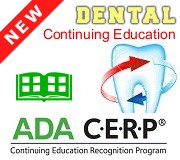 Rare indeed is the patient who happily agrees to your treatment plan, hands over a fistful of dollars and tells you to carry on. For most patients, even those in pain, the treatment plan comes as an unwelcome shock which they wish to go home and think about. Unfortunately, the 'thinking about it' process can often manifest itself as a negative view of the treatment plan. In the company of relatives and friends, many patients become unconvinced about the value of the treatment and question the cost and whether they can afford it.
Rare indeed is the patient who happily agrees to your treatment plan, hands over a fistful of dollars and tells you to carry on. For most patients, even those in pain, the treatment plan comes as an unwelcome shock which they wish to go home and think about. Unfortunately, the 'thinking about it' process can often manifest itself as a negative view of the treatment plan. In the company of relatives and friends, many patients become unconvinced about the value of the treatment and question the cost and whether they can afford it.
What's the take-up or acceptance rate for your treatment plans? Fifty per cent, 60 per cent, 70 per cent maybe? Given that you're offering a professional medical assessment of treatment necessary to maintain or improve your patient’s oral healthcare, everyone should say: "Yes". But they don't.
For a start, the ambience in the treatment room (regardless of pleasing decoration, soothing music and warm words) is not conducive to a meaningful conversation about treatment options. And, necessarily, dentists use complex dental terms to give an accurate description of problems and recommended treatment but forget to translate this into layman's language. With a strict appointment schedule to keep to, dentists don't have the time (and certainly not the inclination) to converse with patients, at length or otherwise. All too often, patients leave clutching a piece of paper with an amount written on it promising to "think about it."
Worse is to come. When they arrive home and discuss it with their family, doubts tumble into their minds. Unhelpfully, someone will go on the Internet and find what appears to be similar treatment for a lot less money. An unexpectedly large gas bill will arrive. The children need new shoes… and so it goes on. As a result, another potential patient bites the dust!
The answer is the patient coordination (also known as the treatment co-ordinator). This is a person within and/or without the practice that is trained to liaise with patients about their treatment plans. In doing so, they answer any questions, allay any doubts and help patients decide to proceed. As a result they increase treatment plan take-up – by as much as 25 per cent in some cases.
Patient coordination works like this. A day or two after a patient has been given their treatment plan, the patient coordinator will get in touch. In my experience, this is best done in an evening or at the weekend when the patient is at home and most likely feeling relaxed and not in a rush.
The patient coordinator should be someone with adequate dental knowledge but not a dentist. Patients prefer to share concerns and their lack of understanding with someone who is patently not an expert. The patient coordinator should go through the treatment plan and translate any dental terms in to plain language – emphasising the beneficial outcomes rather than detailing the procedure. In doing so, they should respond to any queries and concerns raised by the patient.
The cost of the treatment plan is not an issue to be avoided. Instead, the patient coordinator can suggest ways in which payment can be made. If the treatment is to be done in stages, the cost may be spread over several weeks. If the practice offers low or no interest finance (as it should), the patient coordinator can calculate monthly payments that the patient can afford. If the patient coordinator has done their job well, most patients will agree to their treatment plan by this stage.
There could be circumstance in which they don't. During patient coordination conversations I've learned of many valid reasons why patients don't wish to go ahead straight away. They may wish to put off treatment until after a forthcoming holiday or they're waiting for an inheritance due to them to come through or they want to pay off an outstanding loan first. The point is that there are all sorts of reasons – which you only get to know about by patient coordination. With some patients I've had as many as 10 conversations over several weeks before they've been in a position to proceed. A patient coordinator should establish rapport with patients – the role is one of developing a relationship rather than a one-hit hard sell.
An in-practice patient coordinator will often do other things – such as developing treatment plan formats to include more extensive information, images, a glossary of terms and a breakdown of the costs. I'm constantly surprised that the sort of format for a quotation, which is normal for eg having a new kitchen fitted or a patio laid, is not commonplace in dental practices.
The patient coordinator may usefully welcome new patients, give them background to the practice and the dental team and find out what concerns they have about their oral health.
To conclude, I should very much like to hear your views on patient coordination, how it has worked in your practice and what other activities are undertaken by a patient coordinator.
by Jacqui Goss, 1 September 2024
Managing Partner, Yes!RESULTS





 Why every dental practice should have a patient coordinator
Why every dental practice should have a patient coordinator



